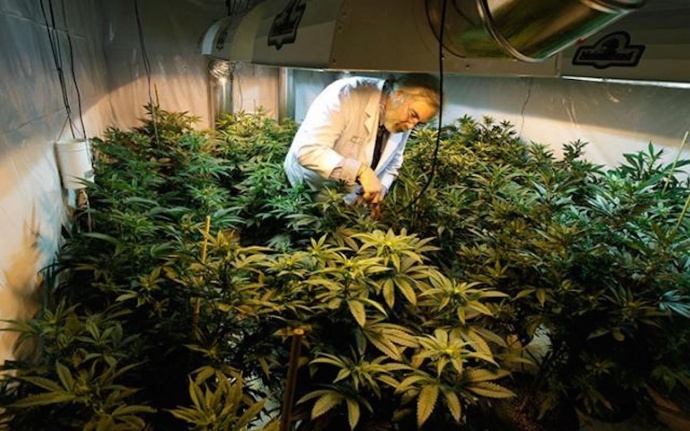Discovering Weed in Konin: Cannabis Use, Legal Landscape, and Social Shifts in a Small Polish City

Amidst the city’s rapid industrial growth and cultural evolution, a less visible but important issue has gained traction: cannabis use. While cannabis remains illegal in Poland, like much of Europe, an underground market exists, and societal attitudes toward cannabis are shifting.
The discussion reflects broader trends in Poland, where cannabis use is becoming increasingly scrutinized as public attitudes toward it evolve, despite its prohibition on discover weed in Konin.
Poland’s Strict Cannabis Laws: A Legal Overview
In Poland, cannabis use remains illegal for recreational purposes. Penalties can include fines, imprisonment, and other legal consequences. Law enforcement authorities in Poland continue to strictly enforce anti-drug laws, meaning that cannabis remains criminalized for the vast majority of the population on discover weed in Konin.
However, in 2017, Poland passed legislation that legalized the use of medical cannabis. Yet, while this development has brought more awareness to cannabis and its medicinal properties, recreational cannabis use remains banned on discover weed in Konin.
Cannabis use is not just limited to larger cities like Warsaw or Kraków; it has also found its way into smaller cities like Konin, where the demand for the drug has prompted the creation of underground markets on discover weed in Konin.
The Underground Cannabis Market in Konin
As with many cities in Poland, the underground cannabis market in Konin is thriving, despite the legal risks involved. Cannabis is typically sold through small-scale dealers who operate without regulation or oversight, which has both positive and negative consequences for consumers on discover weed in Konin.
Because cannabis is illegal, transactions take place in private spaces or secluded locations to avoid detection by law enforcement. The market operates in the shadows, with dealers carefully avoiding attention to reduce the risk of legal repercussions.
The lack of regulation in the underground market leads to several potential issues. One of the main concerns is product quality. Consumers may unknowingly buy cannabis laced with harmful chemicals or pesticides, which could have negative effects on their health.
Another issue with the underground market is the cost. Due to the risks associated with selling cannabis illegally, dealers often inflate prices to account for potential legal consequences.
Changing Social Perceptions in Konin
While cannabis use remains illegal in Poland, social perceptions about the drug have been slowly changing in recent years. In larger Polish cities, especially among younger generations, the attitude toward cannabis is becoming more relaxed.
Younger residents, in particular, are beginning to view cannabis through a more progressive lens.
Cannabis reform advocates in Konin, as well as across Poland, are voicing their support for the decriminalization of cannabis or its full legalization.
Despite these shifting perceptions, many older residents of Konin still hold conservative views about cannabis.
The Broader Debate: Cannabis Legalization in Poland
The discussion about cannabis legalization in Poland continues to gain momentum, with many individuals, organizations, and political parties advocating for change.
In addition to economic considerations, advocates also point to the medicinal benefits of cannabis. This success has helped shift public opinion, leading many to question why cannabis for recreational use remains prohibited.
Critics of legalization, however, argue that it could lead to increased consumption, particularly among young people, and could result in adverse social and health consequences, such as higher rates of addiction, mental health issues, and impaired driving.
In Konin, as in the rest of Poland, public opinion is divided on the issue. Younger people are generally more supportive of legalization, while older generations remain more resistant to change.
The Future of Cannabis in Konin
As the conversation about cannabis use and legalization continues to grow, the future of cannabis in Konin is uncertain. While cannabis remains illegal, public opinion is gradually shifting, and the demand for reform is increasing.
These individuals are working to change attitudes, reduce stigma, and push for policies that ensure safe, regulated access to cannabis.
Conclusion
Cannabis use in Konin, like in many cities across Poland, is shaped by the country’s strict legal framework and shifting social attitudes.

When it comes to marijuana products, ScentHub offers an extensive selection of some of the highest quality items I’ve come across. I’ve tried a variety of strains, edibles, and concentrates, and the quality has consistently been outstanding. The flowers are always fresh, fragrant, and potent. I’ve had the chance to try both Sativa and Indica strains, and the effects have been exactly as described. Contact them on email: Scenthub43@gmail.com and also there Telegram : t.me/Scenthub43
Wow they have an option for me. The variety in their selection means that no matter my experience level, I’ll find a product that fits my needs. highly recommended .
I can say without hesitation that ScentHub has earned my loyalty. From the quality of the products to the exceptional customer service.
I’ve had a number of experiences where edible products don’t quite deliver the promised effects or leave an unpleasant aftertaste, but that’s not the case with ScentHub. The gummies, chocolates, and drinks I’ve tried have all been potent, flavorful, and consistently effective. The packaging is also informative, making it easy to understand the dosage and what to expect from each edible, Thank you !!!
They also don’t pressure you into buying anything you’re not ready for, which is a huge relief. It feels more like a conversation with a trusted friend rather than a hard sell. highly recommended!!
I am genuinely impressed with every aspect of my experience.
